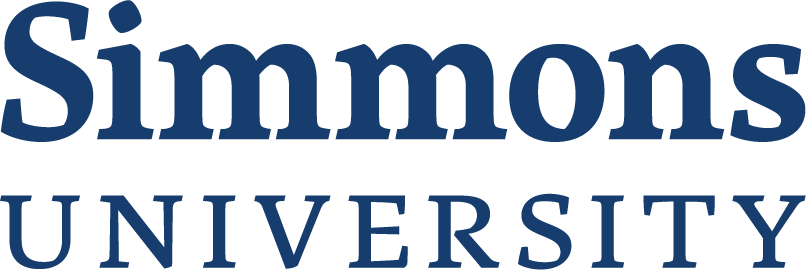Call for Proposals: IJIDI Special Issue
Posted October 4, 2019
A Special Issue of The International Journal of Information, Diversity, & Inclusion (IJIDI)
ON DIVERSITY, RECORDKEEPING AND ARCHIVY
We have grown so accustomed to using the word diversity as a value reflecting a spectrum of cultures and abilities that we often fail to see what Tania Canas has so candidly pointed out – “diversity is a white word.” Rather than dismantle frameworks that produce and reinforce inequalities, she argues, the sector has taken up diversity as an aesthetic that includes only conditional, predefined and palatable visibilities. Canas’ work aligns with Roderick A. Ferguson’s claim that diversity is a tool of neoliberal institutions, which employ a rhetoric of Diversity and Inclusion as a strategy for managing disruptions to capitalism brought about by minority differences. In other words, institutional programs of diversity are more likely means of control than radical interventions into systems of power. What does this mean for archivy? As the Western archives and recordkeeping discipline experiences its own moment of selfreflection, how can archives avoid the kind of superficial diversity Canas decries? How can archives achieve the kind of fundamental change needed to address biases and inequalities baked into traditional methods and practices? What tactics and strategies might archivy use to organize the profession into one that is as reflexive, welcoming, and desirable spaces for those who are presently absent.
For this special issue, we invite archivists, recordkeepers, knowledge keepers, critical theorists, educators, scholars, students, and creative individuals to consider how the archives and recordkeeping discipline has or has not taken up diversity in the broadest of meanings. We invite work that offers critical reflections on diversity in the archives and recordkeeping profession. We are interested in work that suggests critical interventions into archival systems that produce and reinforce inequalities. We seek contributions that offer alternative ways of understanding archives and recordkeeping in and outside of the profession or describe diverse archival practices that challenge entrenched ideas about what archives do and for whom they perform. We are particularly interested in hearing perspectives on archives and diversity from Black, Indigenous, People of Colour (BIPOC), disabled, and LGBTQ2+ people. Non-Western perspectives are also welcome and encouraged.
We welcome a broad spectrum of submissions that touch on the following themes:
Do we agree that archivy has a diversity problem? If so, what does this mean? Whose problem is this and why?
Is “archives” a white word? How does archivy uphold white supremacy? What strategies can archivists and recordkeepers employ to challenge white supremacy in the profession and in archival systems?
How have archives and recordkeeping associations grappled with homogeneity and/or issues of diversity and inclusion? Are these programs successful? Where have they stumbled? Who has benefitted and who has not? (i.e., the SAA Mosaic Program, ICA’s FIDA program, the AERI Emerging Archival Scholar program, #ARAGlasgowManifesto, #thatdarnarticle, #thatdarnlist)
What is archives outside of archivy? Who are archivists outside of the archival profession? Who engages in memory work outside of the archival system and why? Can individuals be archives? Can archives exist without people? Can archives exist without records?
How have critical archival theory, continuum thinking, and community archival theory challenged archivy? In what ways have these approaches contributed to new understandings of archives and recordkeeping? What tactics and strategies do they suggest for confronting structural inequalities and engaging change?
How have community/public perceptions of the archives and the collections they hold contributed to new understandings of archives and recordkeeping? What tactics and strategies have communities used to confront real and perceived biases in archivy and the records it deems worthy of archival preservation.
What are the urgent demands for archives with regard to diversity? How can these demands be recognized and acted upon? Are these demands culturally specific (e.g., Western) or are they universal (e.g., global)? Who contributes the labour to meeting these demands? What is imagined future of archivy? What are the strategies and tactics we can use to move archivy toward this future state?
We invite proposals for the Articles section, as well as shorter submissions for the Special sections; the latter may include opinion/viewpoint pieces, interviews, work in progress, reports from the field, doctoral projects, and theory-to-practice essays. We are also interested in creative non-fiction, photographic essays, and poetry.
This issue will be guest edited by:
Rebecka Sheffield, Senior Policy Advisory, Archives of Ontario, Toronto CANADA ([email protected])
Janet Ceja, Assistant Professor, Simmons University, Boston, USA ([email protected])
Stanley Griffin, Lecturer, The University of the West Indies, Mona Campus, JAMAICA ([email protected])
Submission Process – Important Dates
Jan 1, 2020: Expressions of interest (Extended abstracts of up to 1,000 words for full research papers, and up to 500 words for contributions to the special section). Please email your submissions to: [email protected]
Jan 30, 2020: Notification of acceptance
May 1, 2020: Full papers due
October 2020: Special issue published
Author Guidelines and Peer Review Process
Please consult IJIDI Author Guidelines and IJIDI Peer Review Process at: https://jps.library.utoronto.ca/index.php/ijidi/about/submissions#authorGuidelines
Any questions related to this issue should be addressed to [email protected]
